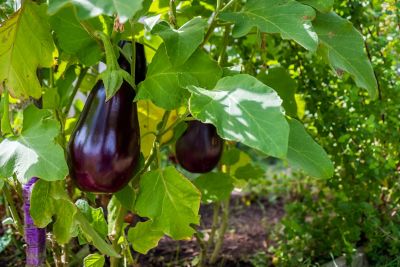 Open Innovation
Open Innovation
By now, we've all heard the world's population is projected to reach nearly 10 billion by 2050. Responding to basic nutritional needs of a growing population amidst a myriad of challenges – global shifts to higher protein diets, less arable land, and climate change, just to name a few – is a daunting task, to say the least.
Across the ag industry, and certainly at Corteva Agriscience, determining how we can continue helping farmers feed the world despite these challenges is always top of mind. No one person or organization will be able to overcome them alone. That’s where new technologies and innovative research come into play.
While we certainly have our work cut out for us in the next 30 years, we can’t discount what got us through the challenges we faced – and overcame – in the last three decades. There are countless examples of technological and scientific innovations that help us do more with less. In 1990, most communication was accomplished through landlines and snail mail. The only way to have straight teeth was either superb genetics or pesky wire braces. And, if you wanted to know how many steps you walked each day, you had to start counting when you got out of bed.
Advances in agriculture are happening too. For example, Pamela Ronald’s lab at the University of California-Davis in collaboration with David Mackill and other researchers at the International Rice Research Institute performed pioneering work by deploying advances in biotechnology to the field. The work resulted in a new flood tolerant rice variety. With this innovation, millions of farmers can now grow a reliable crop that can be submerged for up to two weeks. It’s this same combination of technological and scientific advances that will play a critical role in sustainably feeding 9.7 billion people in 2050.
In another project, the Corteva Open Innovation team collaborated with Dr. Ronald’s lab, supporting research on how CRISPR-Cas can be part of a sustainable solution to the agricultural challenges we face.
“Working with Professor Ronald’s lab is enabling us to understand how we can apply new tools such as CRISPR to help solve the pressing problems growers face every day,” shares Marc Cool, Global Seed Policy Leader, Corteva. “This project began with a survey of California organic vegetable farms to understand the biggest challenges they face.”
Ultimately, Corteva’s collaboration with UC-Davis resulted in a review article in the inaugural issue of Nature Food, exploring a breadth of crop biotechnologies, including CRISPR, and how each can play a role in the future of our food1. With improvements like these, the industry is moving one step closer to a more efficient and secure food system.
“Scientific innovation is a critical element in the goal to feed the growing population while safeguarding the environment”
-Prof. Pamela Ronald, UC-Davis
image by Liane MiltonPamela Ronald alongside her husband Raoul Adamchak
“Scientific innovation is a critical element in the goal to feed the growing population while safeguarding the environment,” shared Prof. Pamela Ronald, UC-Davis.
We couldn’t agree more, Dr. Ronald. At Corteva, we strive to innovate while keeping the health of people, animals, and the environment at the forefront of new ideas. In June 2020, we released our 2030 sustainability goals with a focus on increasing the resilience of our global food system, supporting farmers, bettering our communities, caring for the land, and improving our operations.
We are committed to enabling the research community and encouraging wide adoption of gene editing to improve agriculture and make licenses to CRISPR-Cas9 available to nonprofit organizations, academics, and commercial enterprises.
1Steinwand, M. A., and Ronald, P. C. (2020). Crop Biotechnology and the future of food. Nature Food. 1, 273–283. https://doi.org/10.1038/s43016-020-0072-3
Corteva Agriscience Global Precision Phenotyping Lead, Nate Coles, shares the importance of precision phenotyping to improve plant breeding.
A shared goal motivates everyone involved in the discussion. “Most people want to advance sustainable agriculture, feed the poor or malnourished, and use our land and water more efficiently.”



